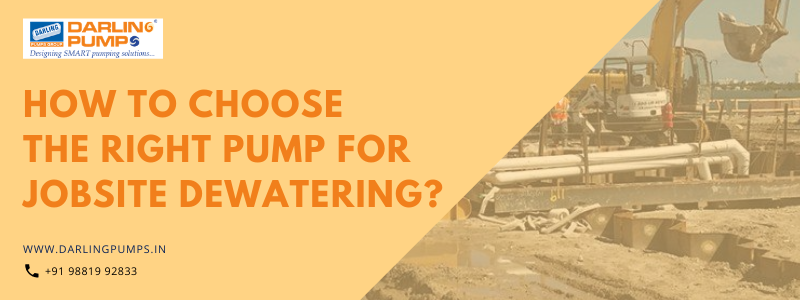
Anyone playing any role in the pumping world can understand how each pump has its own role to play. Whether we talk about dewatering pumps, submersible sewage pumps, or any other pump, this remains to be true.
In this blog, we’re going to put some light on the process of jobsite dewatering.
Dewatering is something that plays a critical role when it comes to success as well as the safety of most jobsites. It has the capability to pose many challenges. All these challenges vary depending on the jobsite.
Therefore, for successful dewatering, it becomes highly imperative to choose the right pump for the job. This can be done by simply keeping some factors in mind while starting the hunt for the right pump.
Let’s explore what those factors are, and how they help.
Before selecting any pump, be it sewage pumps, or dewatering pumps, you need to answer some basic questions. In this case, the following are some good questions to start with:
What is required by the pump to be accomplished?
What is the type of liquid that will be pumped through the pump?
Does the liquid selected have any solid matter?
How far does this fluid require to be pumped and at what rate will it be moved?
When considering the jobsite environment- are there any special considerations, or the need for any auxiliary equipment?
Does the noise have the possibility of becoming an issue?
On the jobsite, where will the pump be placed?
What is the location of the liquid being discharged?
Would there be a filtration requirement by the application?
Having a look at the types of pumps to choose from will work out great. You will know what you need, and if not, at least you’d know what you absolutely don’t need.
When it comes to a pump’s capabilities, they vary from low pressure to high pressure and from specialized to highly versatile as well. Some pumps are more capable of pumping fluid vertically as compared to others, where some can work well for moving water with debris, and others would clog doing the same.
It is important to understand that a pump that wasn’t designed for moving solids might cost you less but might clog and break if debris is pumped through it.
Most commonly used for jobsite dewatering are portable trash pumps. This is especially the case on jobsites which have an open body of water that can be pumped through a hose or a pipe. Such centrifugal pumps become ideal for the process of transferring water that contains solids as well as debris.
Similarly, diaphragm pumps are ideal for muddy applications, wellpoint pumps are engineered for wellpoint as well as sock dewatering with large water volume, high-air handling, and high-vacuum capability, hydraulic submersible pumps are ideal at the time of a pump unit not being able to be located next to the source.
Apart from this, there are many jobsite challenges to keep in mind, while you go for choosing the right pump. For better advice on the same, seek professional help by experts like Darling Pumps. Whether it is advice related to submersible sewage pumps or dewatering pumps, they can help! For more details contact us at +91 99819 92833.
